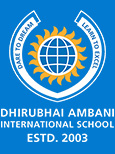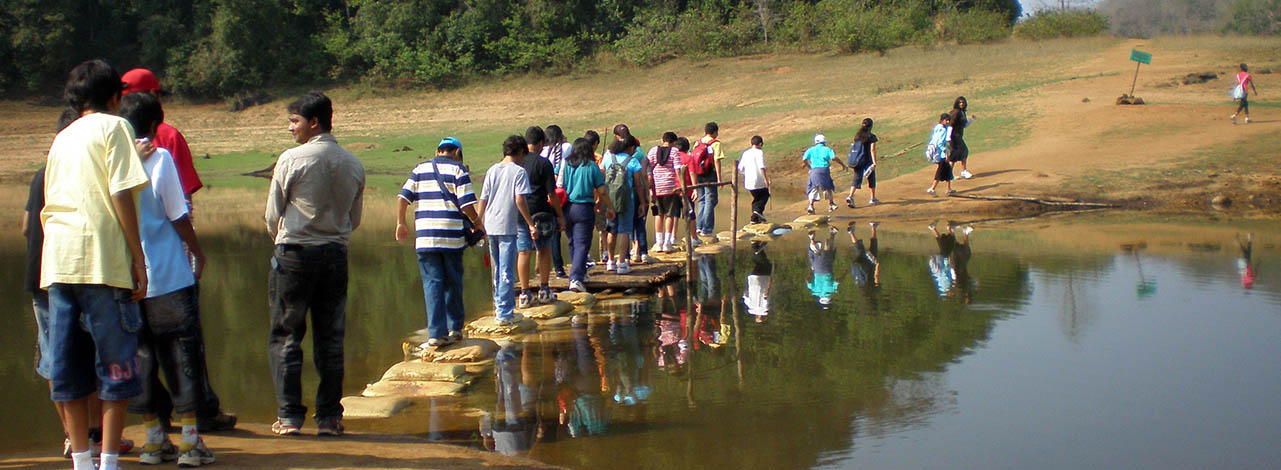INDO-CZECH EDUCATIONAL & CULTURAL EXCHANGE
(Prague: December 2nd – 10th & Mumbai: March 6th to 16th)
Our trip to the Czech Republic started on a high note; one of hospitality and warmth, in spite of the near freezing temperatures outside. We arrived in Prague early on a Sunday morning and were greeted at the airport by Mr. Rupert Marks, IB Co-ordinator of the Open Gate School, our hosts for the trip.
Historically, Prague has always been an important European centre for culture and politics. It is famed for its beauty, which has remained largely unchanged for hundreds of years. During our trip we were fortunate enough to witness much of this beauty and culture first-hand. The initial days of our trip were spent getting to know our hosts and they accompanied us on our tours of the city. Our visit to the Czech Republic coincided with the Catholic season of Advent, which is preparation for the birth of Christ. This is the lead up to one of the most loved holidays across the world and it was a new and exciting experience for us; there were Christmas trees everywhere, the street lamps were hung with decorations and there were Advent markets in various corners of the city. Living in India means that we’re no strangers to festivals and celebration, but this was still a new experience for us.
Much of the architecture around the city has a gothic flavour. From the statues adorning Charles Bridge to the church spires stabbing into the sky, to the wondrous Astronomical clock that dates back to medieval times, to be in Prague is to be immersed in a sense of history and awe. More of this was evidenced during our trip to the town of Kutna Hora, which is regarded as Old Prague and it is splendid. Ironically, in the tranquil Kutna Hora we visited the macabre yet enchanting Bone Chapel. The Chandelier there was made up of all the 206 bones in the human body, which was something we’d never seen before.
Attending classes at Open Gate was a really interesting experience. We found that their way of learning was very different from what we’re used to. Given the student teacher ratio, we found that there was a higher level of interaction and communication. It was very nice of the teachers to take the time to incorporate us into their classes, even though we didn’t always do the same subject. For example, in the French and Spanish classes, they asked us what we’d like to do and they used the time for us to share our language experiences with them, and vice versa. We picked up a few words in Czech as well. In the evening, we visited the café created by the students and run by students themselves to raise money for various causes, and it’s a part of their CAS activity. It was a lovely experience to see how students here had their own private recreational space.
At the end of the trip, we felt a certain embodiment of the principles of the exchange; we had discovered a new culture, we had experienced new ways of learning, we learned that despite our many differences, we are also very similar to our IB counterparts in this beautiful country. It was then that the phrase ‘international-mindedness’ truly started to make sense. We said goodbye, knowing we’d soon be reunited in Mumbai, where we’d have the chance to play host and share our lives with the Czech students.
The time between us returning from our sojourn to Prague and the arrival of the Czech students passed remarkably quickly. Needless to say, we were very excited to have them over and to be able to give them the same sort of cultural immersion they gave us when we visited them.
The focus of the Czech trip to India was primarily on CAS, and specifically on Service. The school-run Village Development Project was an opportunity for the students and teachers alike to engage in the type of hard, manual work that they wouldn’t necessarily have access to back home. We also made arrangements for the students to join us on our other service activities in school, such as teaching children and interacting with children at Akanksha and Muktangan.
The Czech trip started with a tour of Mumbai city, where they were shown around some of the places of interest in the city, like the Gateway of India. As soon as they came back from their tour, we whisked them off to the heart of rural Maharashtra where we’d be working in two villages over the span of four days. The first two days were spent in Kumbharghar, building a school for the village and also constructing ‘proper’ houses for the villagers. At this point, much of the village community is living in houses made of sticks and which aren't quite stable. The goal of the project is to develop sustainable materials for housing and building so that the villagers can carry on the work without incurring significant costs and eventually be able to sell materials like stabilized mud bricks for profit. Work in Kumbharghar progressed quickly, in spite of the burning temperatures and sheer physicality of the labour required. Even though the Czech students were not accustomed to the extreme weather conditions, they all worked tirelessly through the day and were definitely motivation for the rest of us to give it our best.
The second leg of the Village Project was in Hassachipatti, near Matheran. The Czech group was keen to visit this particular village again and see the fruits of the work they had put in the last time they were in India. Doing so allowed the current batch of students to understand the impact of the work that that they were doing and the goal of the learning outcomes of CAS. As in Kumbharghar, there was no dearth of physical work required, whether it was cementing walls or painting the school building.
Throughout the entire time in the village, both the Indian students as well as the Czech students learned the value of working together, contributing to team work and the importance of coming together to put in your best effort to improve the lives of people who may not have access to the luxuries we’re accustomed to. The lessons learned through our time in the villages may not be quantifiable in the traditional sense but they will doubtless stay with us for years to come.
When we returned from the villages, we were able to spend time with the students we were hosting and show them various aspects of our life, be it academic, social or our family lives. The Czech students attended classes based on their selected subjects, rather than accompanying their host to class. This provided ample opportunity to draw comparisons regarding how the same subject may be taught in different countries. The afternoons were spent engaging in various Service related CAS activities, where once more the students were able to bring their own unique talents to the front while interacting with the various groups.
At the end of the entire exchange, there was no doubt that we had collectively achieved the goals of an Educational & Cultural exchange of knowledge. Through our interactions with each other, we were able to share our individual perspectives and understand what it means to be a global citizen. We hope to carry this through in our future activities.

